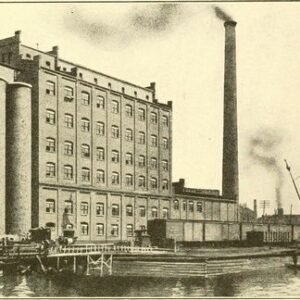
- This project has passed.
YSI – Economic History Graduate Webinar: Homer Wagenaar
YSI - Economic History Graduate Webinars 2020
Start time:
May 20, 2020 @ 2:00 pm - 3:00 pm
EDT
Location:
Online
Type:
Other

Description
Homer Wagenaar, PhD student at the Queen's university, Belfast, will present his joint work with Christopher L. Colvin: Patently Peculiar: Understanding the Impact of the Patent System of the United Kingdom of the Netherlands, 1815-1830
If you wish to attend, please register for the entire series here: https://forms.gle/LtqDgzoDtAojZg1S8
Attendees will receive by email on Wednesday morning the link to join the webinar.
Abstract:
How accessible was the patent system of the United Kingdom of the Netherlands? How did the accessibility of the patent system matter in light of the diverging development paths of the Netherlands and Belgium? To answer these questions, we make use of a new hand-collected database of all requested patents, both rejected and accepted, between 1815 and 1830, when there was a political union between Belgium and the Netherlands. Our data contain personal characteristics of all patent applicants, including occupation and place of residence. This database is itself an important contribution because most (historical) patent research only makes use of accepted patents, thereby obfuscating the effects patent systems have on selecting success. Our unique data allow us to explore the relationship between the personal characteristics of patentees and their success rate, and to test regional differences in the use of the patent system. Our case is remarkable because the kingdom’s law of 1817 combined a patent examination process with significant state discretion on patent length and costs, as well as the option to offer rewards and prizes. The state could, and did, regularly make patents free for patentees who could not afford the application fees. Our case is important because the southern Netherlands (i.e. Belgium) industrialised early alongside Great Britain during the Industrial Revolution, but the northern Netherlands did not. While both polities ostensibly shared the same patent system, they had very different experiences of innovation and technical change. This research thus sheds new light on the supposed connection between patent legislation and innovation.
Hosted by Working Group(s):
Organizers
Attendees
Maylis Avaro